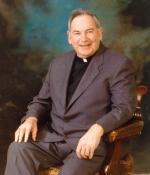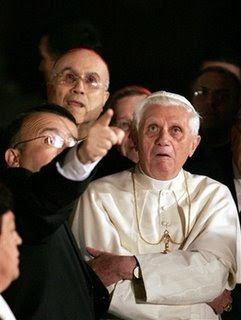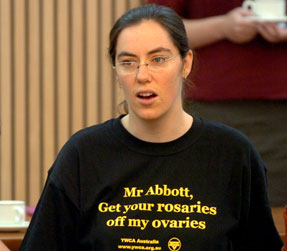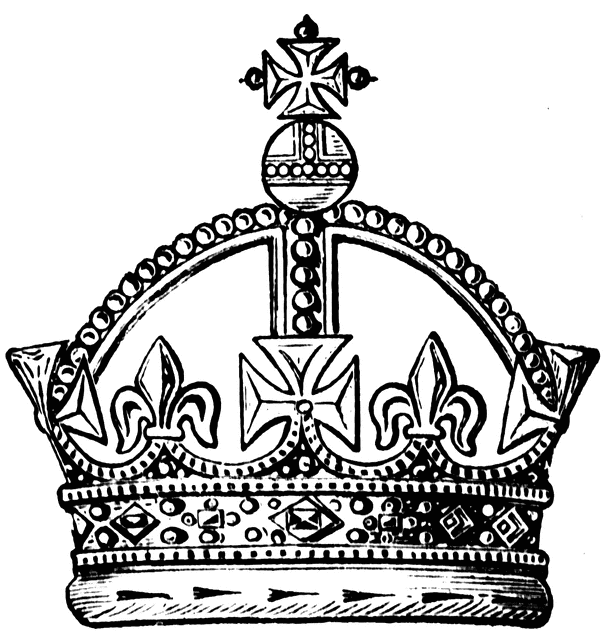(Warning: Long blog--please skip down to the next one if you are not interested in this one).
Back in August,
I blogged on the ruminations of Mr Barry Kearny, a 56-year old parishioner of St Anne’s Parish in Park Orchards who has "been having a very long hard think about the Church" and who has shared his vision for the “Future Church in Australia” by bulk emailing a very large number of folk in the Melbourne Archdiocese. Today he sent out "Part III", and I wish to give him a bit of "cyberspace" in this forum for those who care to listen. He is concerned about the falling mass attendance, and about the fact that many "practising Catholics" simply "go through the motions of attending Mass, and yet not even participate 1% in the Sacred Mystery of the Mass".
I mentioned in my first article that we need a Marketing Plan. I had some very positive responses to that article, but not many responses at all. A couple of people queried the word “marketing”, saying that you cannot compare a business to the Church. OK, let’s ditch “marketing”. Let’s Evangelise.
Good move, Barry. I was one who questioned the use of this commercial approach. Evangelisation is absolutely what its all about.
But we have to begin with evangelising to our own Catholics. Those that “get nothing out of going to Mass”. And this may mean people who never attend, seldom attend, often attend or always attend.
Again, we're right with you there, Barry. I have mentioned before the strange phenomena whereby a Baptist who stops going to church doesn't keep calling himself a Baptist, but a Catholic will still call himself a Catholic even if he hasn't been inside a church since the day of his confirmation.
I am in the usually attend category, but I have been getting very little out of the Mass. ...I must take much of the blame for that, and I have now changed my whole attitude. It was very easy, I just had to have a good think about it, and I read 3 books on reviving one’s Catholic Faith. So I’m back.
Yep, folks, he's right. It IS very easy, and there isn't really much to it besides actually caring enough to do it. A little side note here. My girls are Lutherans, but I am raising them as
Catholic Lutherans. Maddy (aged 8) actually said about a year ago that she wanted to be Catholic like me, but (and here is the shame faced fact of it) she has a better chance of being a Catholic when she turns 18 if she continues as a Lutheran now. Her parish is in the process of hiring a full time "child and family" worker, on top of a part-time youth worker, and an assistant Pastor with post-graduate qualifications in child and family catechesis. The Lutherans haven't got anything we don't have--but they do make use of what they've got. The 2001 National Church Life Survey found that of all Australian Churches, the Lutherans are best at retaining the young. End of side note.
But what are we going to do about the 90% of Catholics who rarely attend Mass? ...The Mass and the Eucharist are the answer.
Right you are again, Barry.
As you may or may not have read in my second letter on the Future Church, after my first letter I attended some Baptist services. I attended even more after the second letter. The Baptists at New Hope Blackburn and Crossways Burwood have thriving communities. They have big bands, talented singers, cameras showing the services on big screens, hordes of young people, piles of money, and the communities throb with enthusiasm. They have strong “faith” And huge attendances. Everything that most Catholic Churches are lacking including young Catholics. I even saw young Catholics being baptised, saying how the Catholic Church was lacking for them and that they have been born again.
They can do all this, and they do not have the Mass or the other Catholic Sacraments and they are part of a denomination that has broken away from the Church founded by Christ. The question is not, “how do they do it?” It was very clear how they do it. I found some of what happens in these churches quite disturbing. The question for our Church is what can we do within the parameters of our Faith to help Catholics to want to come to Mass.
Like I said with regards to the Lutherans, they don't have anything we don't (or couldn't) have (I don't know if we really want "big screens", but I wouldn't say no to the rest of the list). In reality, we have more, as Barry points out, in the fullness of the Word, the Ministry and the Sacraments. But we seem to be less ready to make use of it. Its as if the ecclesial communities to which Barry refers have learnt to feast on a famine, whereas we have grown so used to the feast that we have preferred to fast in the face of it.
Barry then attaches the summary of the ACBC Report on “Catholics Who Have Stopped Going to Mass” by Bob Dixon, the chief planner for the Australian Catholic Bishops’ Conference. As Barry says, "It was compiled after in depth interviews with 41 Catholics who have stopped attending Mass or just attend on special occasions."
I have also attached a statistic sheet published in 2001 which showed that about 15% of Catholics regularly attend Mass. ...The Report mentions that some people are ceasing to identify themselves as Catholics. It calls this “disidentification” and says that ceasing to attend Mass is an early stage in this process.
As I said above, this process of "disidentification" is much slower for Catholics than for almost any other type of Christian (except perhaps Orthodox), largely because of the cultural element. It would be worth seeing some studies on this.
The three most commonly mentioned “church-centred” reasons [for not going to mass anymore] were:
1. The misuse of power and authority in the Church.
2. The irrelevance of the Church to life today especially in relation to co-habitation and contraception.
3. Lack of intellectual stimulation eg poor sermons.
I don't know about no. 1, which is largely a matter of perception, but no. 2 is probably a sympton of no. 3. More intelligent, more faithful and better presented homilies would go a long way to fixing the perception that the Church is irrelevant to life today.
The 3 main participant-centred reasons were:
1. Crisis of faith – it no longer provided meaning or made sense.
2. Family or house-hold related issues.
3. Going to Mass simply not a priority.
Barry comments with regard to these three that "Probably these reasons are all inter-related eg if the Church is irrelevant or there is a lack of intellectual stimulation, a Crisis of Faith or making Mass a low priority are likely", which accords exactly with what I said above.
The major findings of the Report are:1. A large majority of participants believe that the Church is out of touch with the current world and is not relevant to their own lives
2. In general, participant’s alienation from the Church has been a gradual process in which changing attitudes to Church teaching have interacted with negative personal experiences of Church personnel and regulation
Supplementary findings of interest are:1. It was difficult to isolate a single reason why they stopped attending Mass.
2. Many participants displayed a very poor knowledge of the Catholic faith.
3. It was important for virtually all participants that they nurture the spiritual dimension of their lives.
Concluding Remarks
“Factors identified by the participants in this research which led them to stop going to Mass are also influencing people who are still regular Mass attenders …….In other words, if no action is taken, there are Catholics who are regular Mass attenders who are already on a path that will make them disappear from church life in a year or two”.
Given all this, it is interesting that, as Barry notes, The Report "...recommended that “Parishes review and evaluate practices and policies, especially the way liturgy is celebrated, to ensure that people are welcomed and respected”", especially when it appears that it is the quality of catechesis and homiletics that needs to actually be reviewed.
Barry then follows with some valid "thoughts". First, given that "The report is based on only 41 participants...it is impossible to judge if the participants are in any way representative of the huge number of older Catholics who have stopped going to Mass after previously being regular attenders."
Secondly, "women outnumbered men by more than 2 to 1", while "it is quite clear that men as a group are pulling out of Mass attendance more than women". A very valid point. There is good reason to think that a church that cannot keep its menfolk will not keep its womenfolk or families either. Again, the Lutheran Church of Australia is phenomenally good at keeping men involved. In the long run, I believe, evangelising men and getting them back into active parish life will do more for the future of the church than concentrating on a single age demographic such as youth.
Barry rightly identifies the reason “it no longer provided meaning or made sense” as being crucial. "If it did provide meaning and made sense," he says, "I believe that many of the other reasons would not be significant." Contraception and cohabitation included. "The Church has clear policies on all these issues," Barry writes, "but never seems to address them or discuss them."
"They should be clarified, and then publicised," he adds. "Church Leaders shouldn’t have “too hard baskets”."
But to the matter of the Liturgy:
We do not have to reinvent the Mass. Just remember it. Emphasise it, cherish it. A few subtle enhancements perhaps, and a lot of education. Educate better.
Barry challenges us to do what the Lutherans are already doing: Making the most of occasions like First Communion and Christmas. I think he is heading in the wrong direction with the suggestion that we could impliment policies that "force those wishing their children to attend Catholic Schools to attend Mass with their children". Not only would that "not be enough", as he recognises, any kind of "force" would be detrimental. There is an old saying that in the dry outback, a well of water works better to keep livestock from running away than a fence.
Barry rightly identifies the issue of "how we teach our Faith in the Schools", but perhaps part of the problem is that Catholics have often placed too much reliance on the parish school to do the catechisation. This is largely passing the buck. It is the parish itself that has the first responsibility for programs of catechisation. The School can offer a supporting role, but it can never be expected to take the whole responsibility (or blame when the process fails).
Barry is also right to say that "we must offer education programs to older Catholics"--for the Christian life involves a "whole of life catechesis" not just for children.
I do not agree with this suggestion:
To maximise our celebration of the Mass, Childminding and Children’s Liturgies may be helpful. If we are to do more than just attend Mass, the less distractions the better, for parents and others. And the children would be happier. I personally do not find small children an issue, but it may help to cater for them.
Small Children are Catholics too, and they need the mass as much as older Catholics. Children are catechised from the day of their baptism by being brought to the liturgy and being present at the liturgy. We must not exclude them under any circumstances. Yes, there are ways we can help. People without children can assist parents with numerous youngsters. Children's liturgy can be offered between masses (not as an alternative to mass). Kids have to learn to sit and listen to a sermon. This is a skill that is only aquired by doing it. Above all, tolerance must be the key. Believe me, it is a far more joyous thing to be at a Mass that is packed with roudy kids than to be at Mass where a child's voice is never heard.
Barry makes a number of practical suggestions, like "Effective sound systems..., facilitation of participants having access to all the responses and prayers, ...a printed sheet every week with all the words and even the readings and some background notes, even prayers." The latter may not be needed for everyone, but could be useful for some, especially visitors.
These are all important issues, and good on you, Barry, for having a go. As I like to say about these things:
"It ain't rocket science."Folk who would like to respond directly to Barry or get his full article can email him at: barry@footcareinternational.com











.JPG)







